We recently connected with Abby Mechanic and have shared our conversation below.
Hi Abby, thanks for joining us today. Learning the craft is often a unique journey from every creative – we’d love to hear about your journey and if knowing what you know now, you would have done anything differently to speed up the learning process.
How did you learn to do what you do?
I started woodworking in high school shop class when I was 13. I grew up with a mom who had an antique store, so furniture was always a big part of my life. As a kid, I was always interested in art, but once I got into the woodshop, everything fell into alignment. I remember a specific moment being on the chop saw and thinking, “Wait, this is what I want to do with my life.” So, I started to research woodworking programs around the country. That’s when I found the Woodworking and Furniture Design Department at Maine College of Art. I enrolled in a four-year BFA program, took the fundamentals I learned in High School, and ran with it.
Knowing what you know now, what could you have done to speed up your learning process?
Woodworking is a craft and requires many years of practice to hone your skills. Knowing what I know now, I wouldn’t change a thing. Plugging away at this each year since I was 13 has been the most rewarding experience of my life. I wouldn’t want to speed up this process, and I look forward to growing old as a woodworker. I’m a lifelong student in this field.
What skills do you think were most essential?
Woodworking can be extremely dangerous if you don’t know what you are doing. I take great pride in my attention to Health and Safety. The most essential skill I have learned has been the safe operation of all tools and equipment in the woodshop. Without those fundamentals, I couldn’t do what I do!
What obstacles stood in the way of learning more?
There have been so many obstacles to breaking into this field. Woodworking has had a history of excluding groups of people who might not match the stereotype of a “woodworker.” My gender and age were barriers at first, but our field has grown so much since I started, and it has been lovely to see all the new woodworkers emerging.
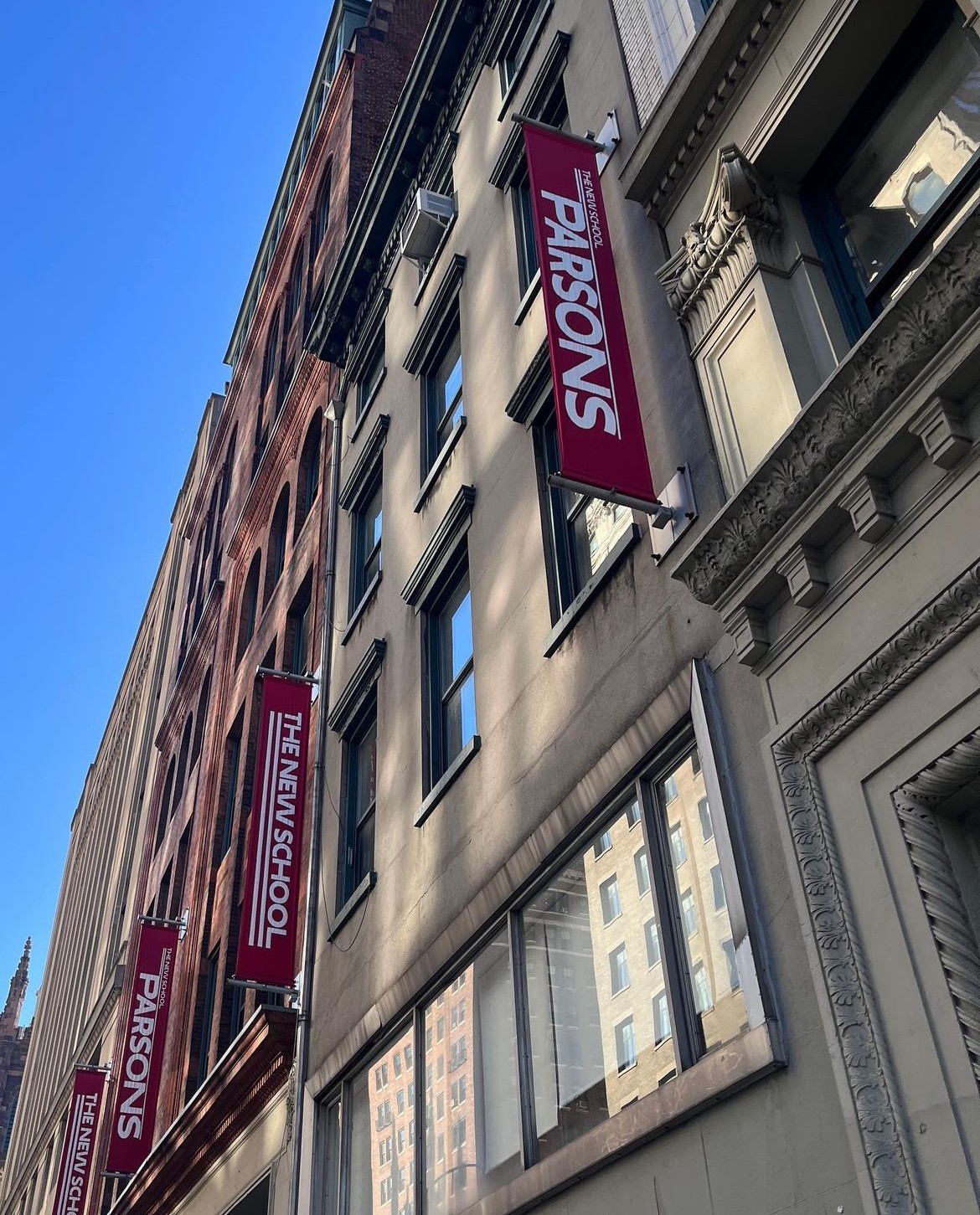
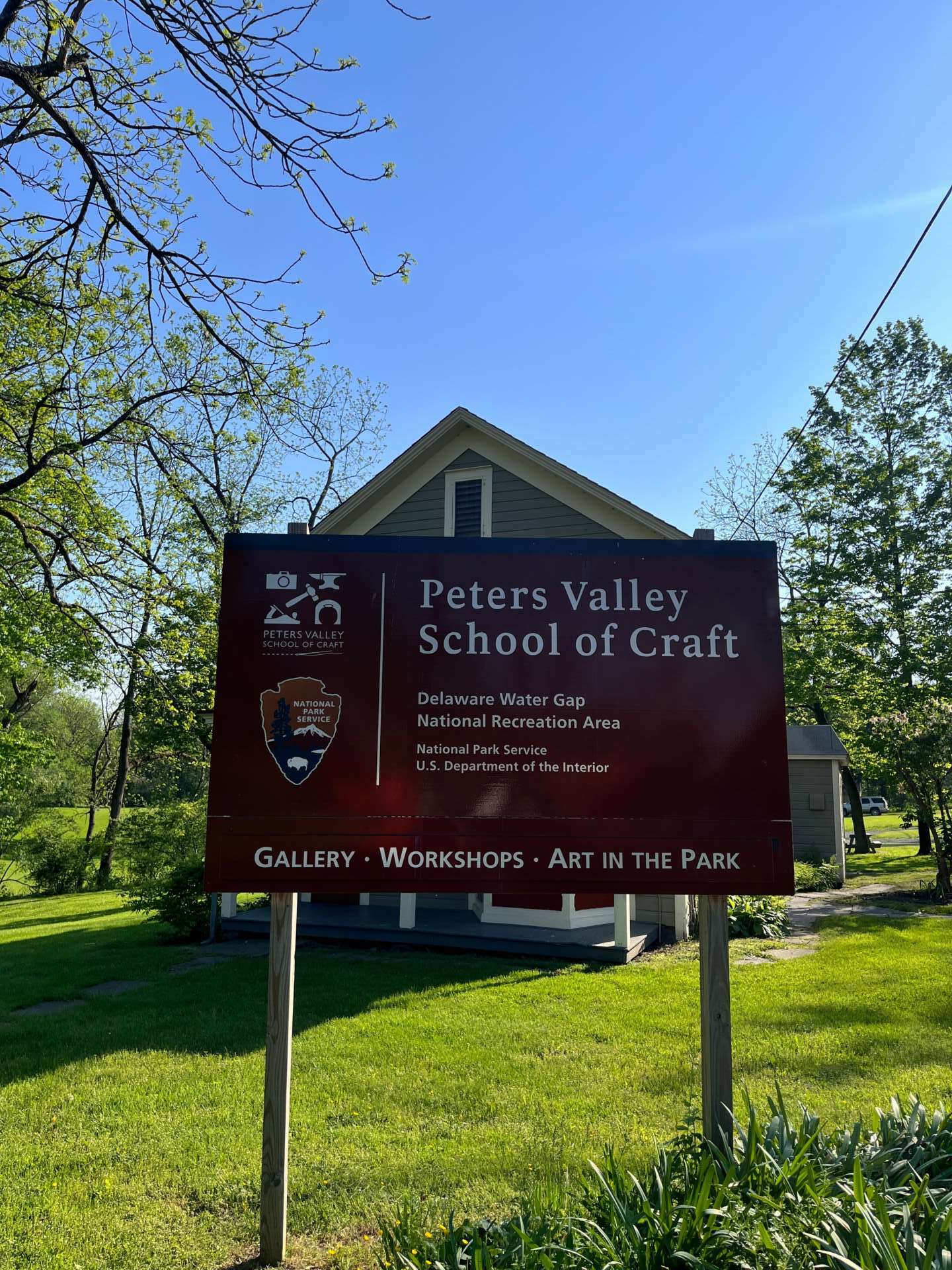
Abby, before we move on to more of these sorts of questions, can you take some time to bring our readers up to speed on you and what you do?
Since graduating from the Maine College of Art, I have focused on my career as a woodworker/teacher and as a leader in the craft field. After working in production shops for a few years, I accepted a position at Parsons School of Design in NYC. I began as a part-time technician in the woodshop, teaching students how to use machines and materials. I worked at Parsons for seven years, climbing the ranks within the Making Center Division. When I ended my tenure at Parsons, I was the Associate Director of the Making Center responsible for our Analog shops. I oversaw a large team of managers, technicians, and student workers within multiple mediums, such as Woodworking, Metalworking, Ceramics, Sewing, and Textiles. This position was an incredible way to apply the skills I had learned as a trained woodworker in an arts admin and leadership position. In that role, I helped to build, maintain, and create systems for all of these shops, and it was an enriching experience.
I left Parsons in 2021 and joined Peters Valley School of Craft as their Education Director. Peters Valley is an American Craft School formed in the 1970s. We are an immersive craft school in partnership with the National Park Service within the Delaware Water Gap National Recreation Area. In my current position, I manage our shops and curate the education program, which includes around 150 unique craft workshops a year. In this role, I oversee Blacksmithing, Ceramics, Woodworking, Fibers, Fine Metals, Glass, Photo, and Printmaking.
Aside from my day jobs, I have also built my brand since graduating college. I started teaching woodworking through Spoon Carving workshops in 2015. I developed a curriculum where I could pop up just about anywhere and get folks interested in woodworking. I started slowly, but over the last 10 years, I have taught over 400 students. When not working at Peters Valley, I started slowly, but over the years, I have taught over 400 students.
https://makingcenter.parsons.edu/
https://petersvalley.org/
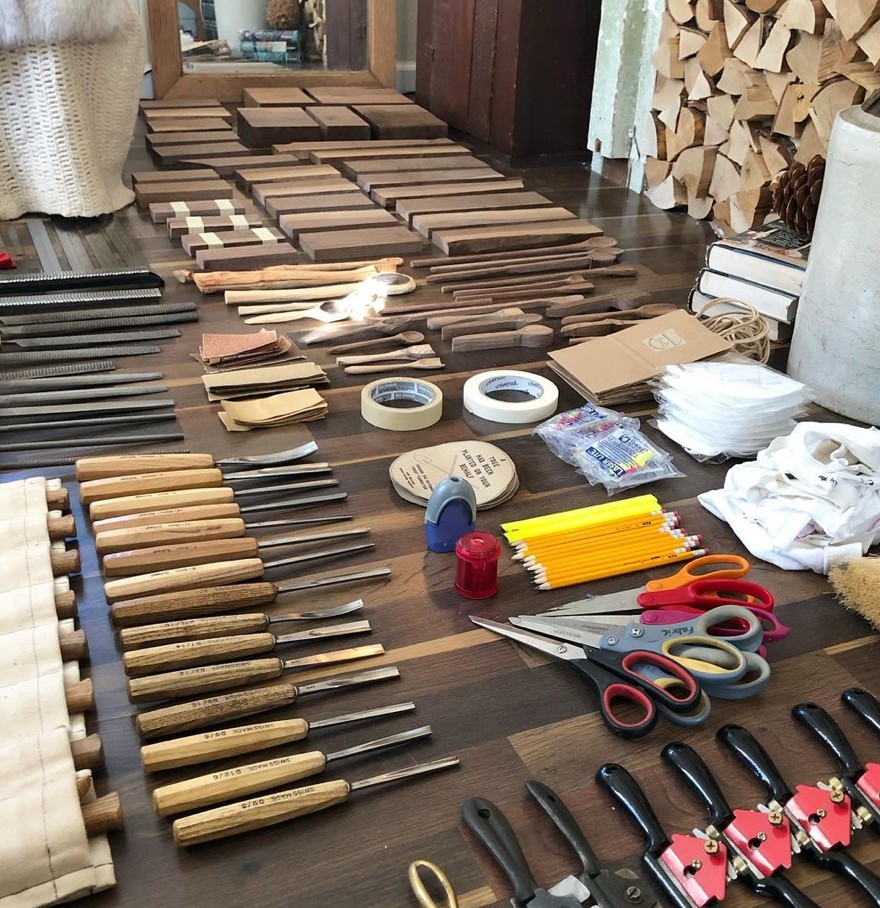
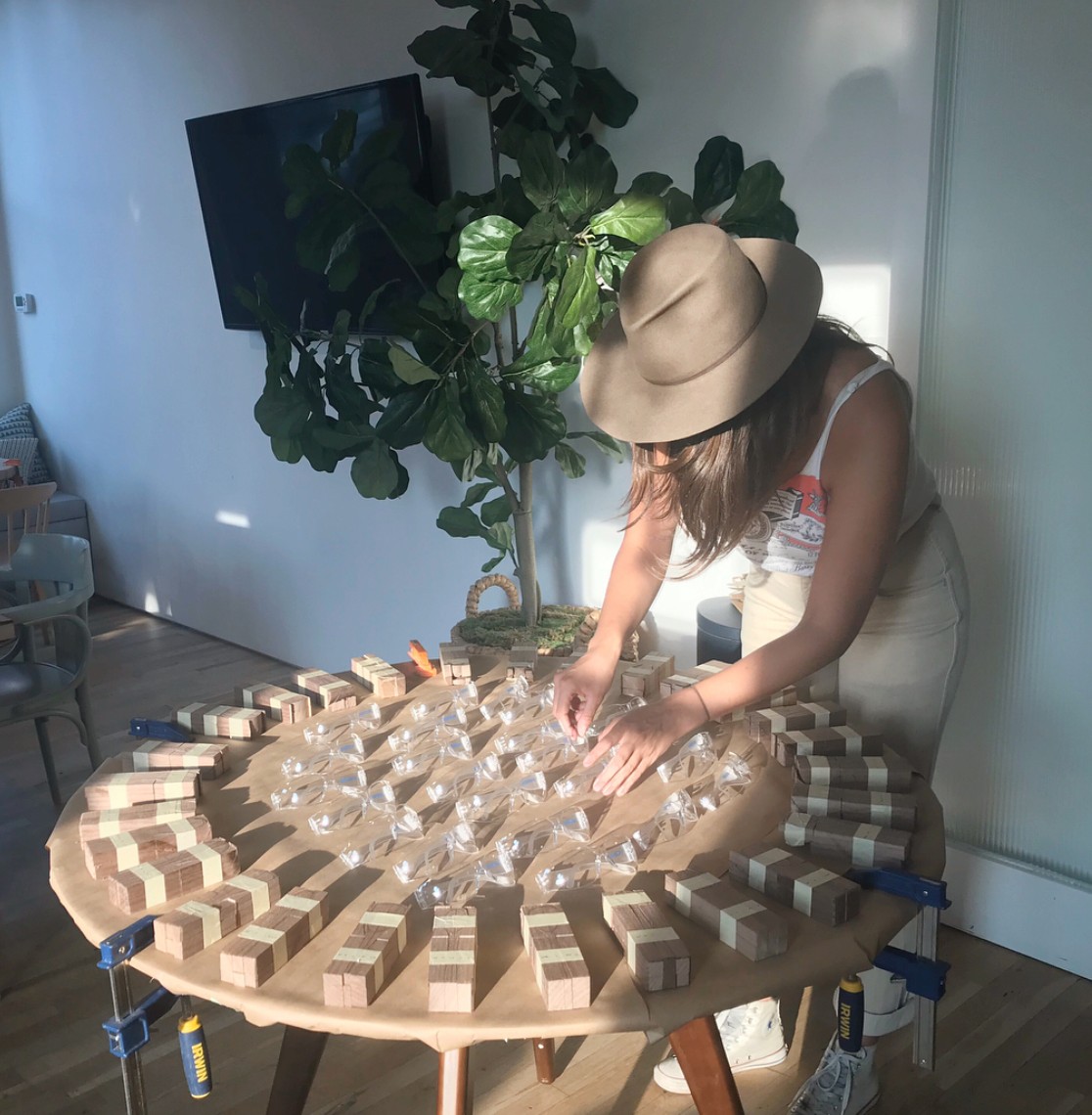
Looking back, are there any resources you wish you knew about earlier in your creative journey?
I’m a board member of another fantastic organization called The Furniture Society (https://furnsoc.org/). This organization is a hub for Furniture Makers, Woodworkers, or folks interested in the medium. FS works to create and provide resources to people in our field. I had known about this organization early in my creative journey, but it has grown and changed so much since I started that I would recommend this resource to folks beginning their woodworking journey.
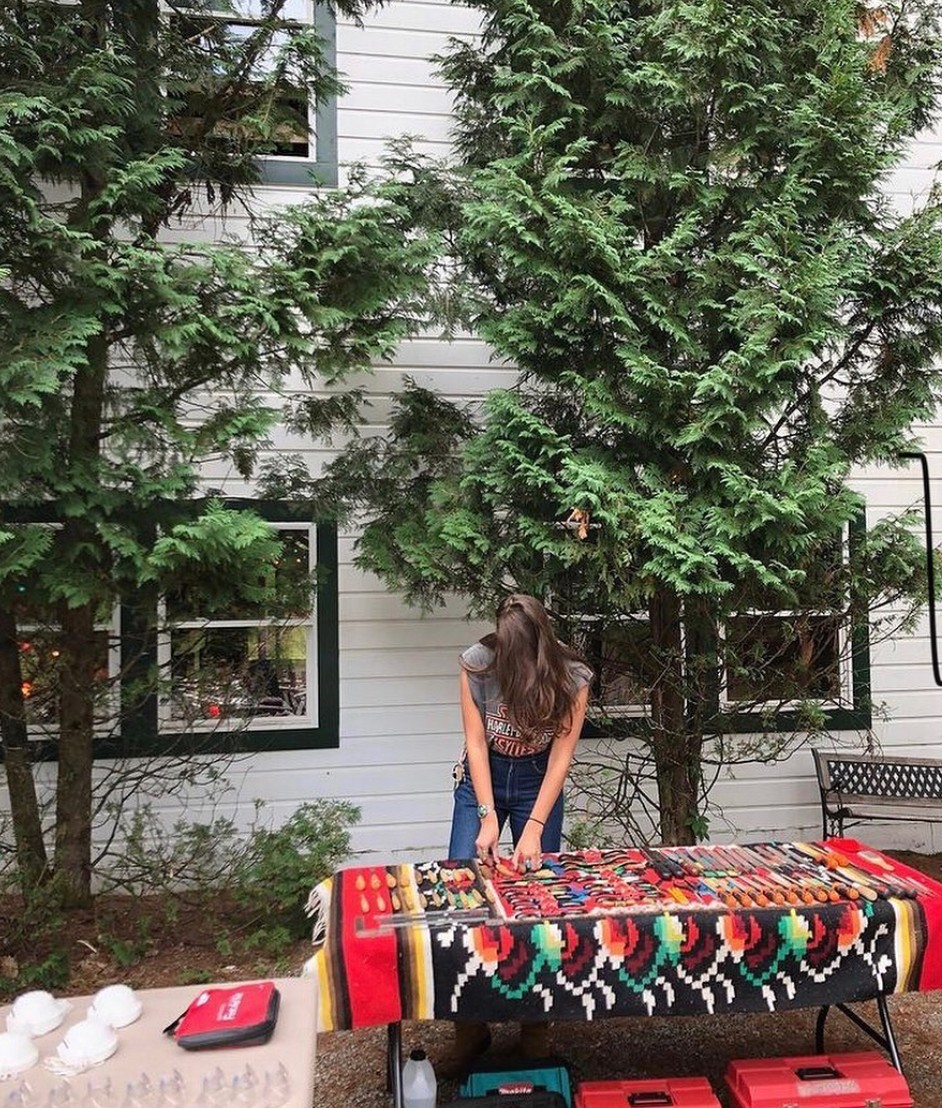
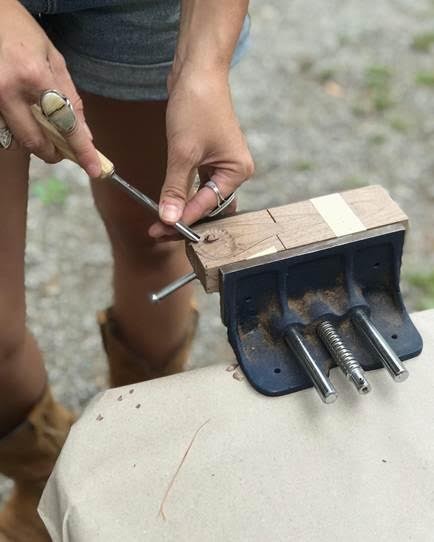
What’s the most rewarding aspect of being a creative in your experience?
One of the most rewarding aspects of being an artist is the freedom and empowerment of making something from your hands. Artists are magicians; we can visualize something in our heads and bring that object into the world through technique and skill. I know that when I’m feeling down or lost if I go to the woodshop, I will always return to myself. The woodshop is a place for me to be my most authentic self, which is the real beauty of being a maker.
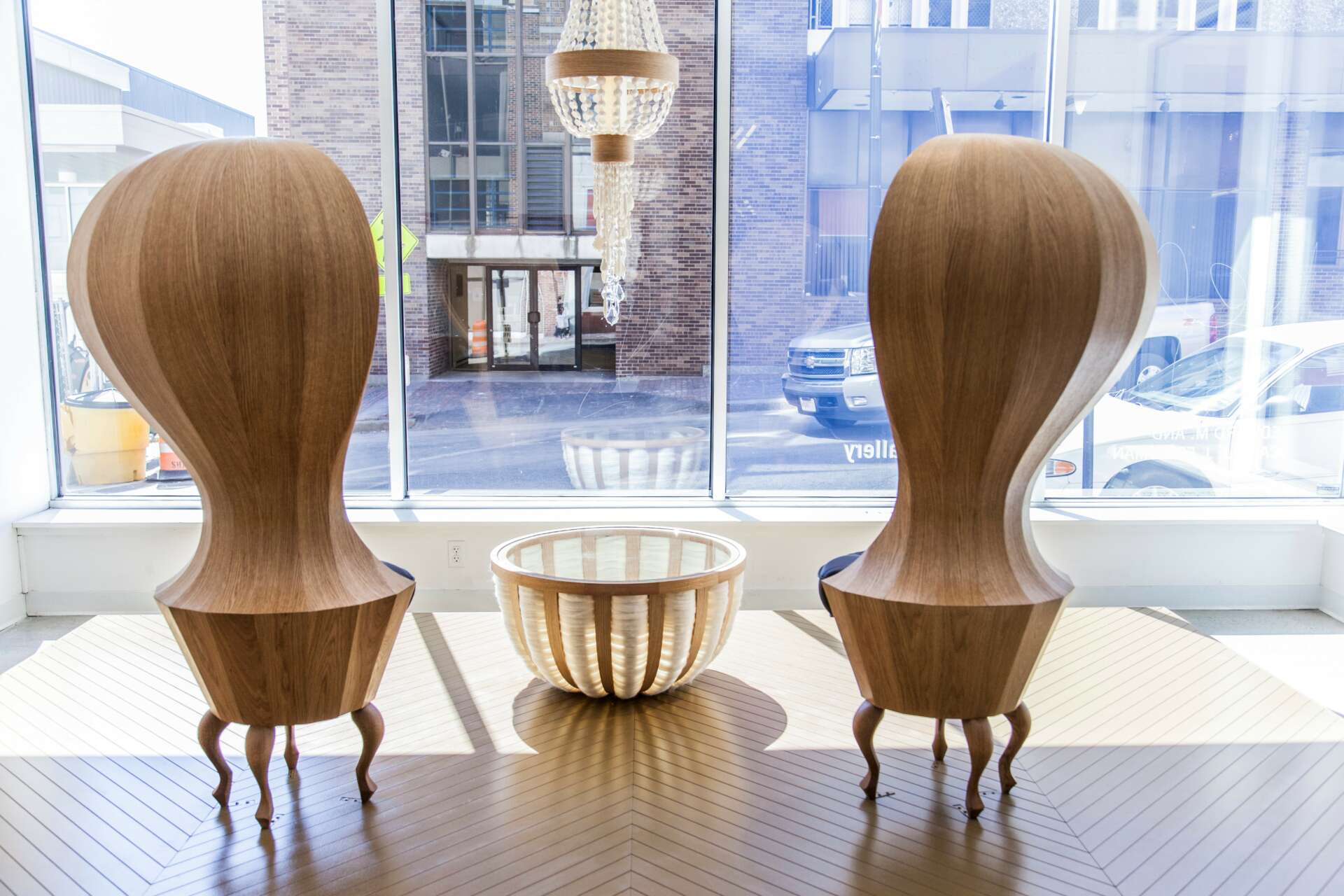
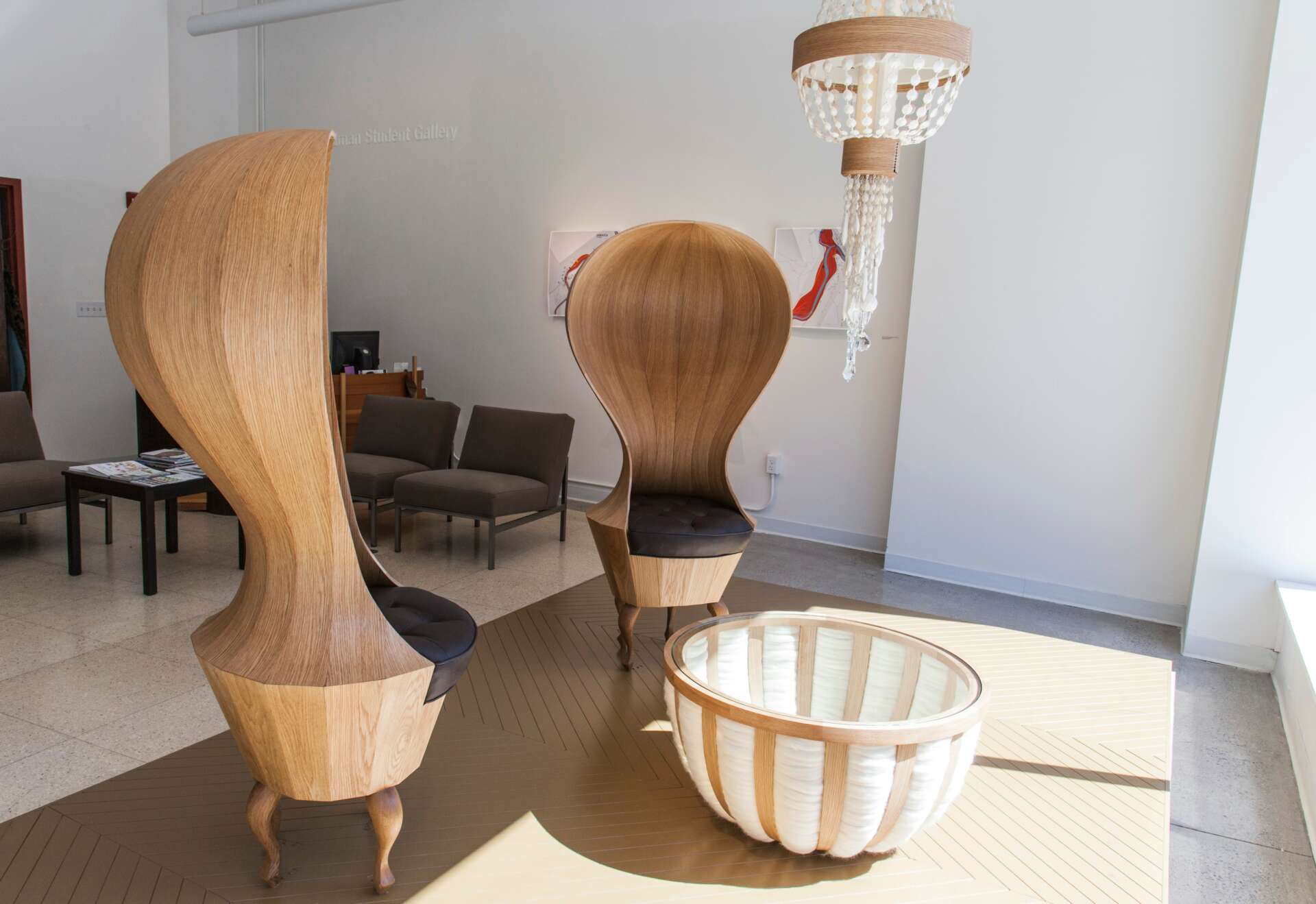
Contact Info:
- Website: https://www.abbymechanic.com/
- Instagram: https://www.instagram.com/abbymechanic/


